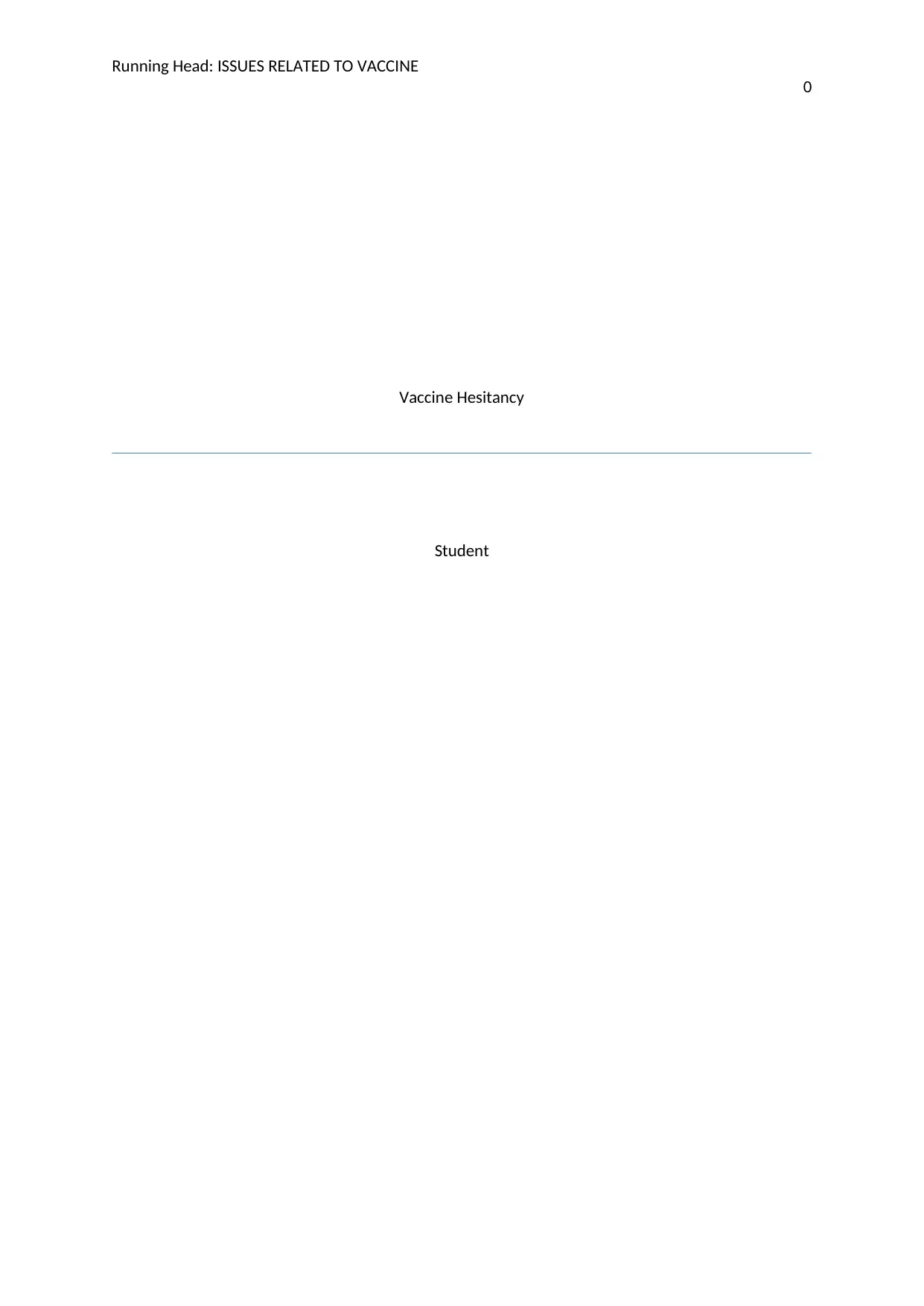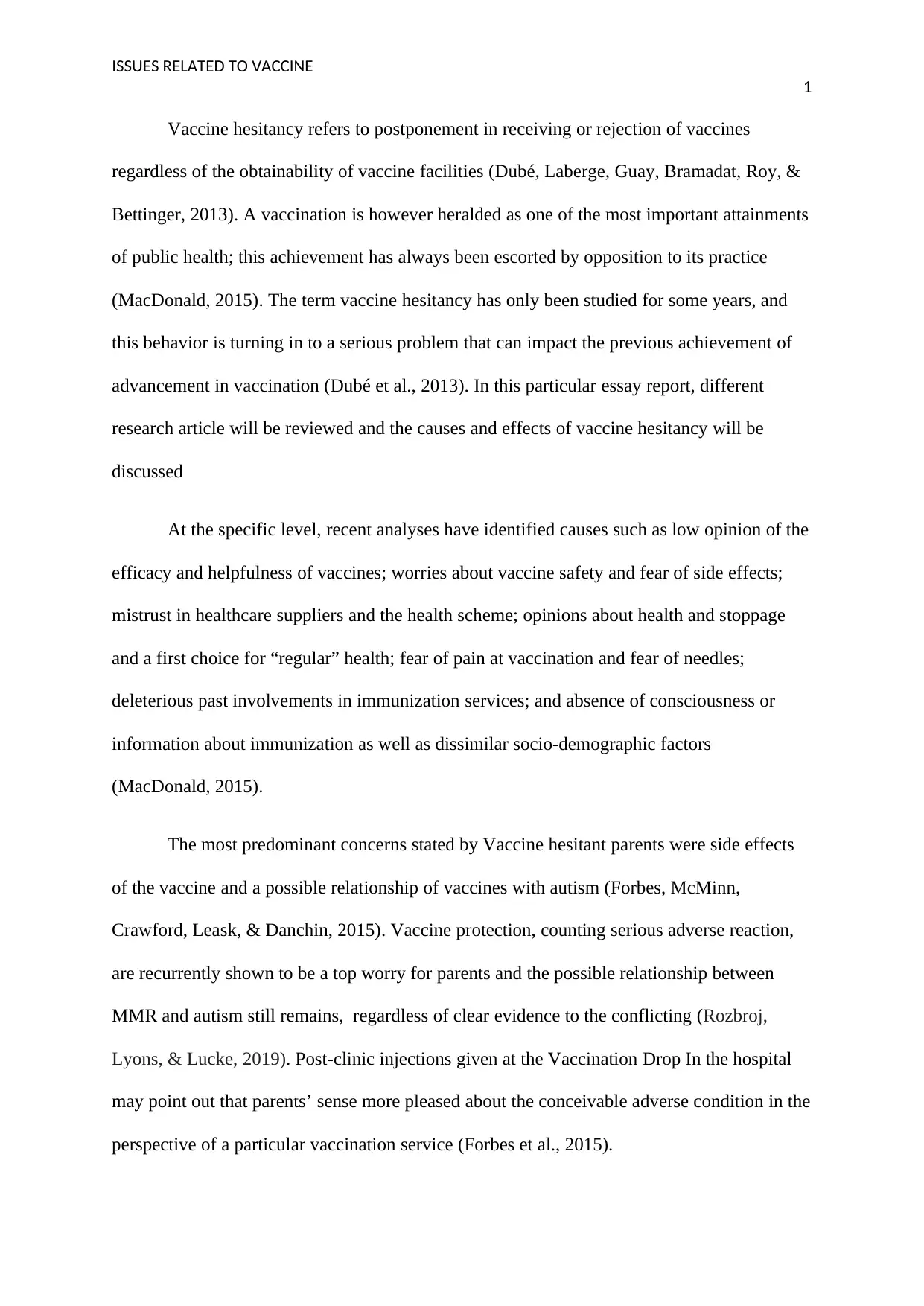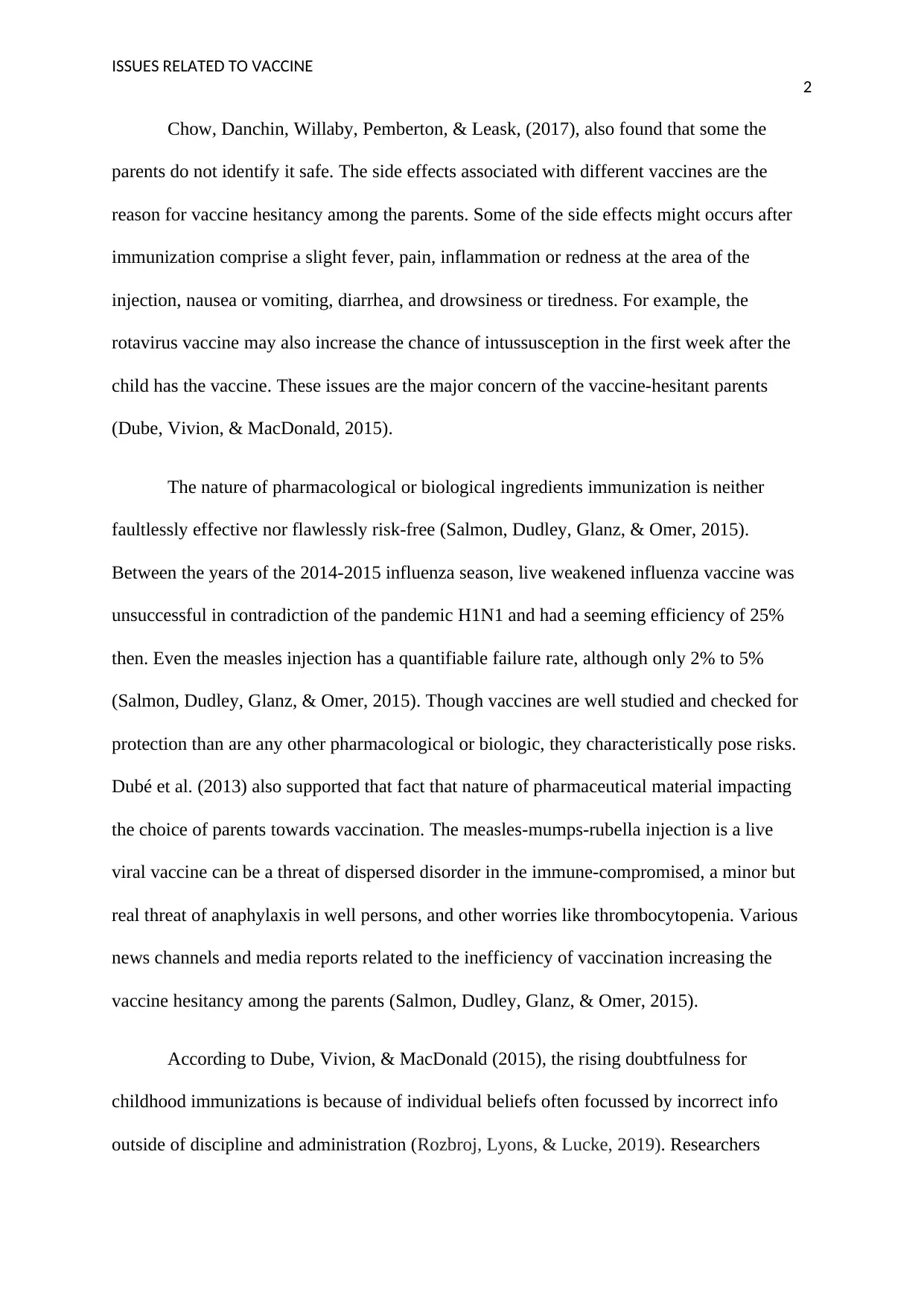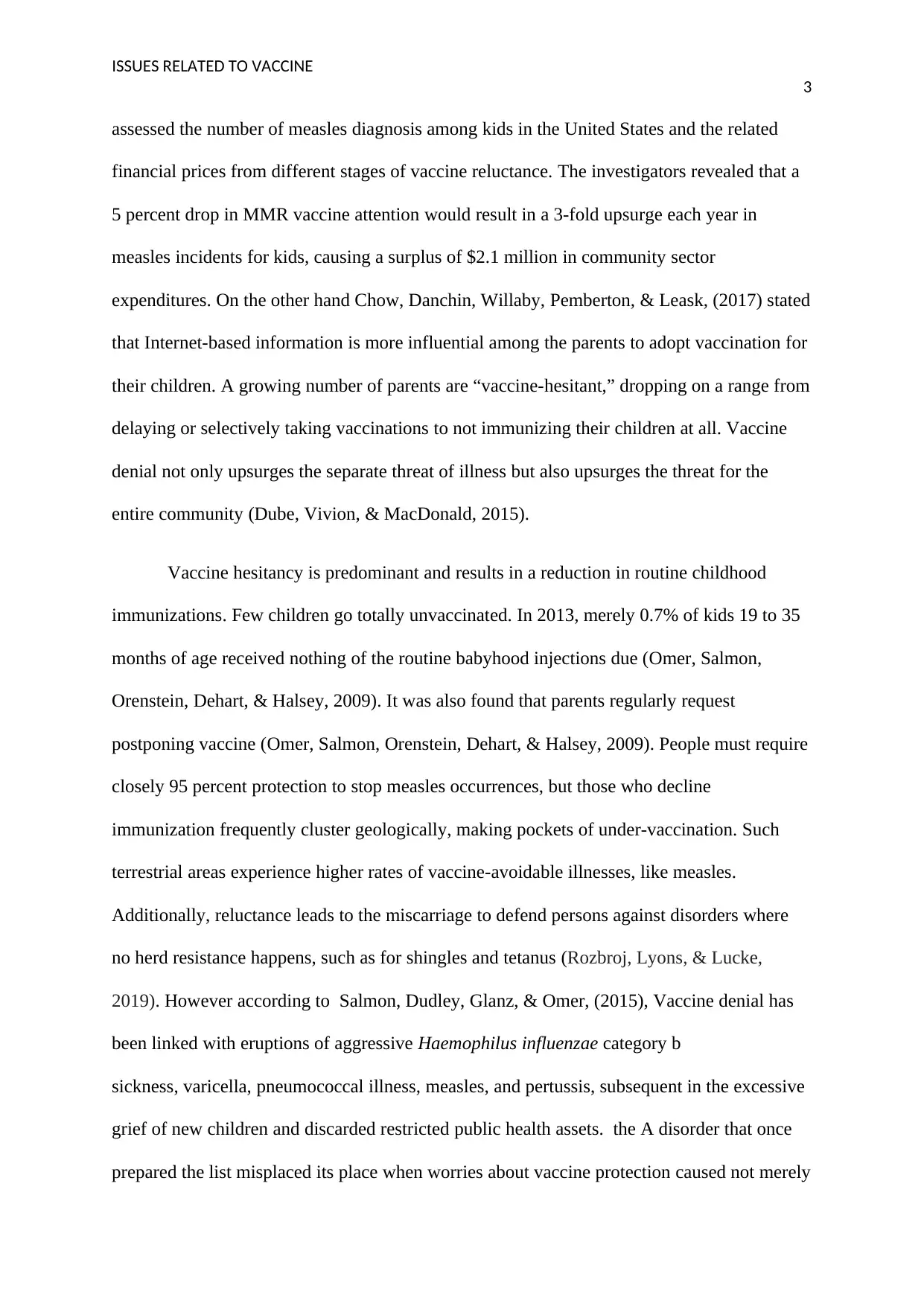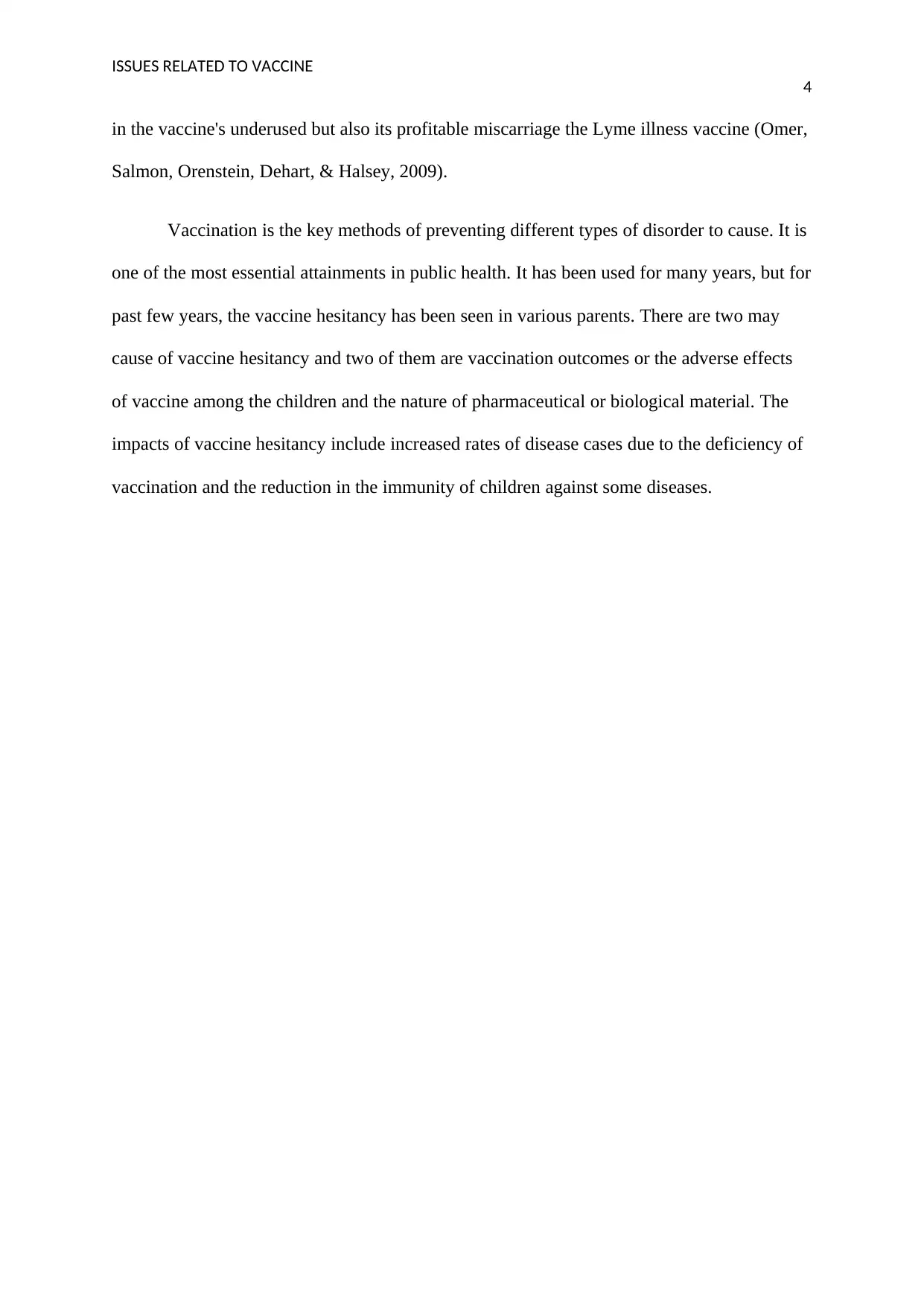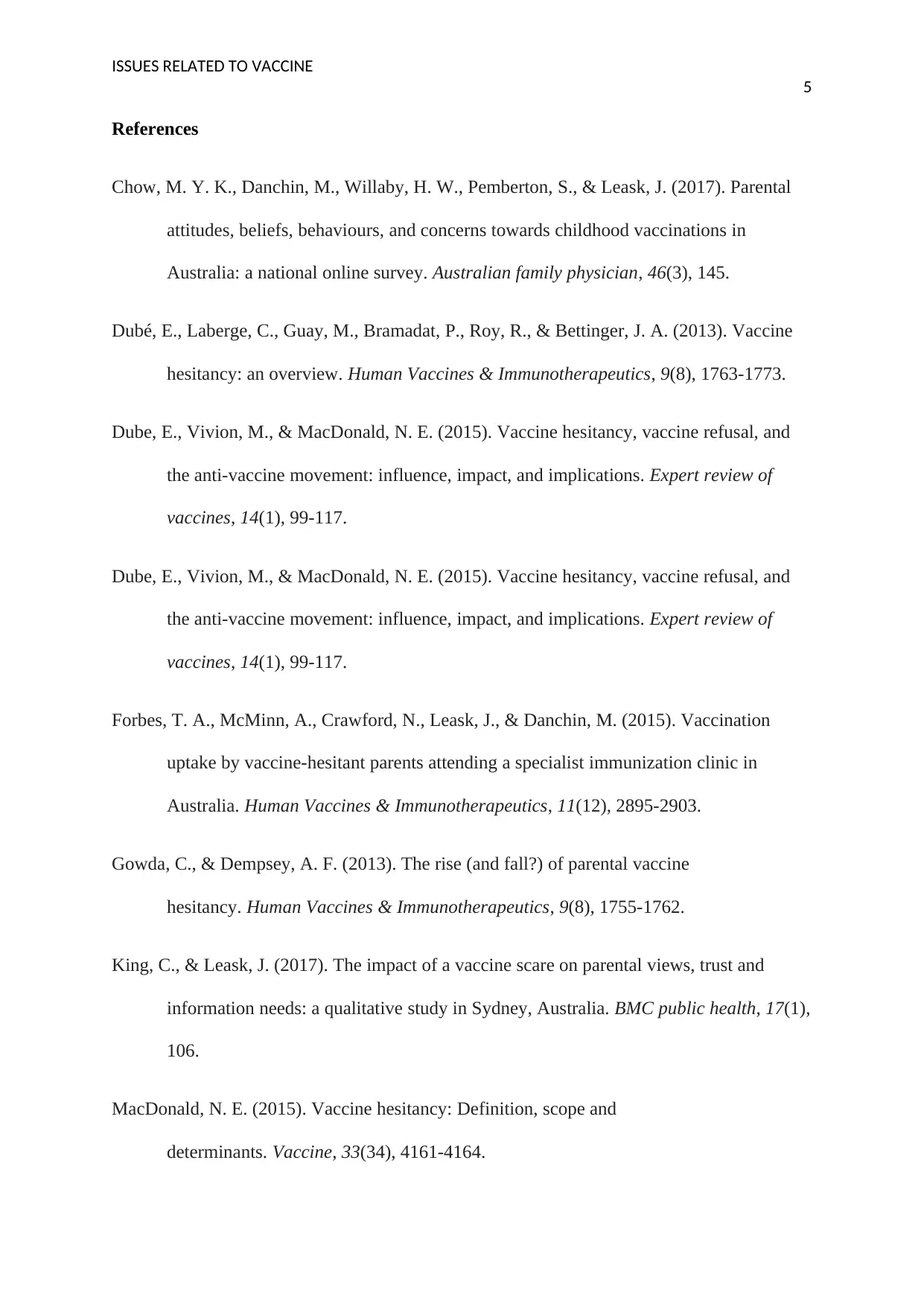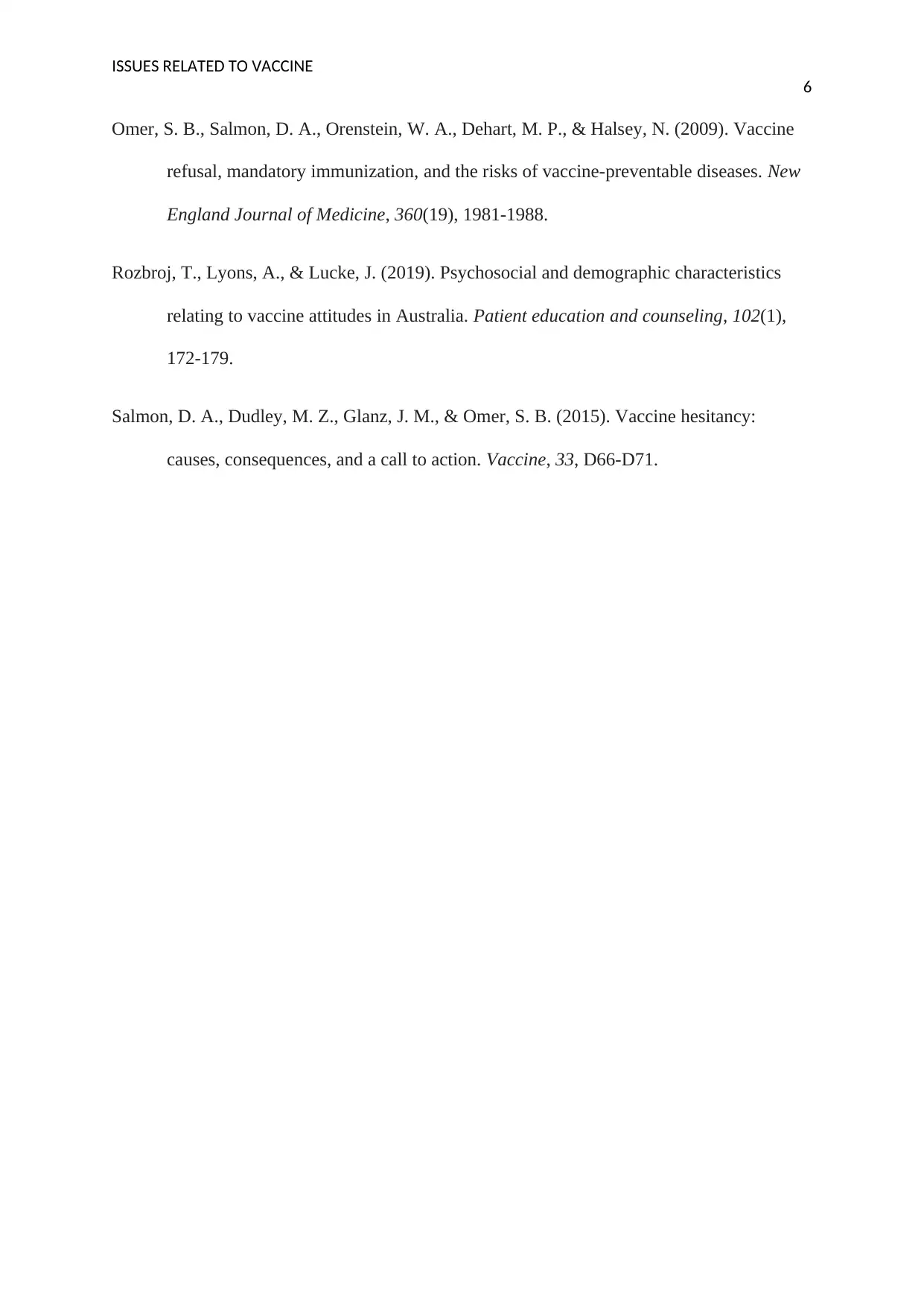This essay report discusses the causes and effects of vaccine hesitancy, which refers to postponement or rejection of vaccines. It also highlights the implications of vaccine hesitancy on public health. The report reviews different research articles and identifies causes such as low opinion of the efficacy and helpfulness of vaccines, worries about vaccine safety and fear of side effects, mistrust in healthcare suppliers and the health scheme, opinions about health and stoppage and a first choice for “regular” health, fear of pain at vaccination and fear of needles, deleterious past involvements in immunization services, and absence of consciousness or information about immunization as well as dissimilar socio-demographic factors. The impacts of vaccine hesitancy include increased rates of disease cases due to the deficiency of vaccination and the reduction in the immunity of children against some diseases.
![[object Object]](/_next/static/media/star-bottom.7253800d.svg)
![[object Object]](/_next/static/media/star-bottom.7253800d.svg)
